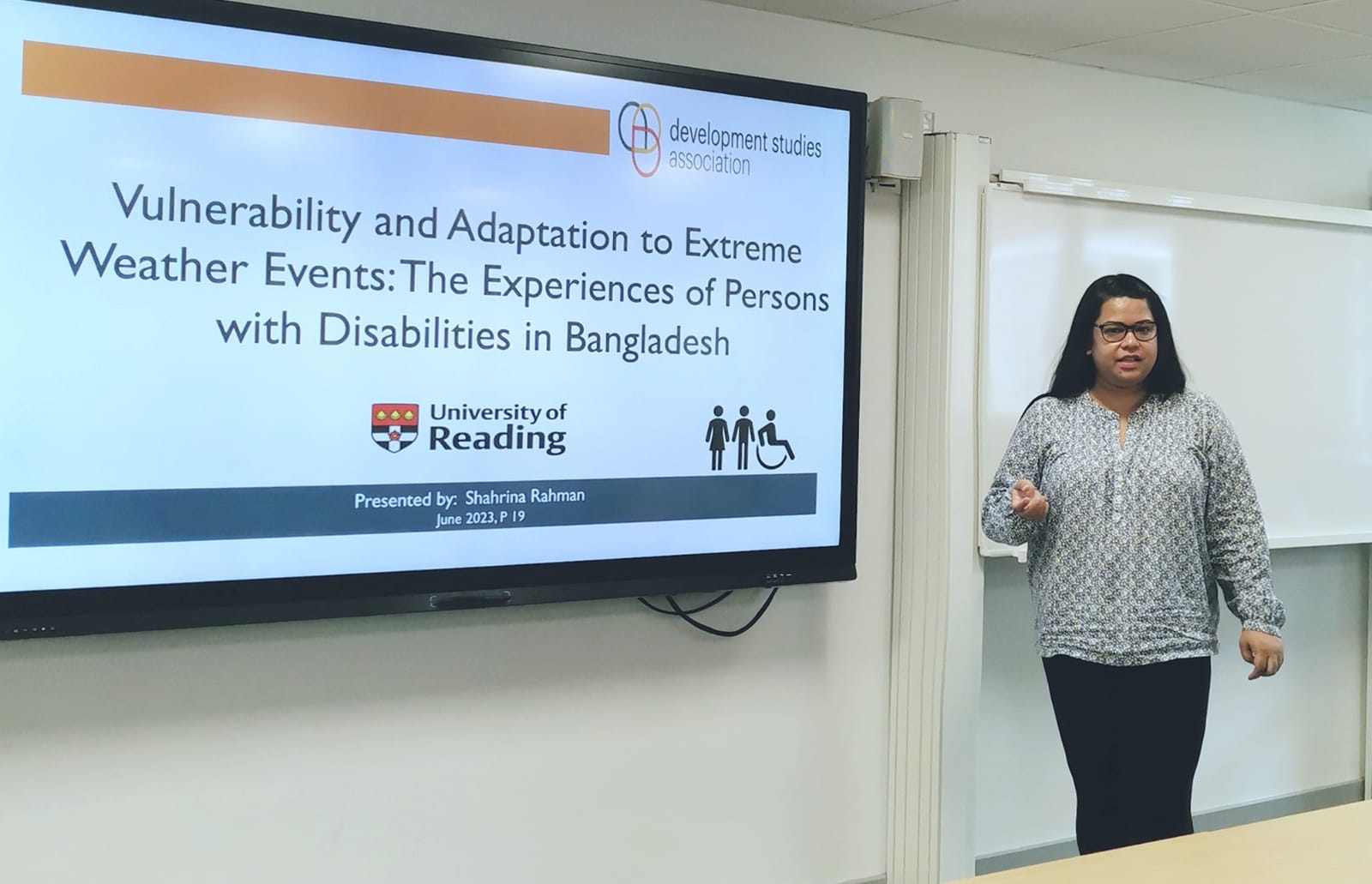The University of Reading recently hosted the Development Studies Association’s (DSA) annual conference in June 2023. The conference theme was ‘Crisis in the Anthropocene: Rethinking Connection and Agency for Development’. Many of the panels showcased Reading’s scholarly contributions across a variety of themes including research ethics, decolonisation, participation and more-than-human engagements. Here, climate ambassador and final year doctoral researcher, Shahrina Rahman shares some reflections on her experience as an attendee and panel convenor.
To begin with the panel I co-convened, Panel 19, “Leaving No One Behind: The Crisis in Implementing Inclusive Resilience in a Human-Induced Disaster”, was our convening title. I was delighted to present on disability issues in the social context of the Global South. My presentation addressed the evidence of continued failure to address disability in development concerns when people living with disabilities are among the most vulnerable in relation to the impacts of the Anthropocene. I also showed a documentary video produced during my fieldwork to broadcast my research participants’ voices and give greater visibility to their disaster vulnerability. My colleagues from Malawi and Ghana, as well as presenters from Australia, Jordan, Bangladesh, and Ethiopia, shared their insights, knowledge and experiences regarding social exclusion, displacement, migration, and the effects of natural disasters and global crises.
I also enjoyed several other interesting and thought-provoking panel discussions at the DSA conference. Some caught my attention because they demonstrated the authors’ deep familiarity with my research interests in disability issues along multiple dimensions and with different notions from worldwide examples, including India, Ghana, Malawi, and Uganda. These discussions provided valuable information for contrasting the experiences of disabled people in Asian and African societies. There were around 83 panels presented over a mere two and a half days, it was thus impossible to attend even a reasonable fraction of the many interesting topics being offered in parallel sessions. The University of Reading academics were well-represented, and many SAPD students (doctoral and MSc) volunteered at the conference, thereby gaining valuable insights into the state-of-the-art in International Development in 2023. Some panels I attended covered topics such as responsible research, research ethics, the value of data collection training, and the necessity of action research, which are all matters to give serious consideration to, especially when dealing with sensitive issues. I enjoyed Jason W. Moore’s (Binghamton University) somewhat controversial keynote lecture, in which he sought to demolish the “climate change awareness myth,” as he argued that is not enough without raising consciousness. He also roundly criticised the notion of the ‘Anthropocene’, calling instead for the central role of capitalism to be recognised for the dire state of the planet. His proposal is that the current epoch should be relabelled as the ‘Capitalocene’.
This was the first time I have co-convened a panel at an international conference. I put in a great deal of effort, and I appreciate my colleagues’ support in making it a successful, if nerve-racking, experience. The DSA 2023 was a wonderful opportunity for doctoral students to make new contacts and build their professional networks, gain exposure to new research, and add creativity and leadership skills to their résumés. For all these reasons, I would like to encourage fellow doctoral candidates in SAPD to increase their national and international engagement to draw attention and get valuable critical feedback on their work and facilitate international knowledge exchange.

